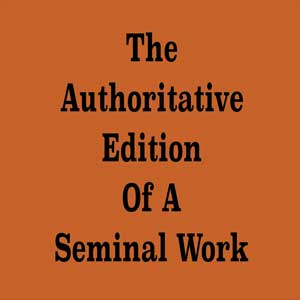Customer Services
Customer Support

Desert Online General Trading LLC
Warehouse # 7, 4th Street, Umm Ramool, Dubai, 30183, Dubai
Copyright © 2025 Desertcart Holdings Limited


Full description not available




C**R
'' 'Democracy' requires a supra-governmental of professionals to sift the data, think things through, and keep from blowing up''
This work from 1922 explains the new 'science' of propaganda discovered in WW1. They found the ability of professionals to persuade the populace to die and suffer for - What?''From his observations on the Allied propaganda drives’ immense success (and his own stint as a U.S. war propagandist), and from his readings of Gustave LeBon, Graham Wallas and John Dewey, among others, Lippmann had arrived at the bleak view that “the democratic El Dorado” is impossible in modern mass society, whose members—by and large incapable of lucid thought or clear perception, driven by herd instincts and mere prejudice, and frequently disoriented by external stimuli—were not equipped to make decisions or engage in rational discourse.''(I just read Gustave Le Bon’s “The Crowd: A Study Of the Popular Mind”. Great!)Wow! Society ''incapable of lucid thought''. Now what?'' 'Democracy' therefore requires a supra-governmental body of detached professionals to sift the data, think things through, and keep the national enterprise from blowing up or crashing to a halt. Although mankind surely can be taught to think, that educative process will be long and slow. In the meantime, the major issues must be framed, the crucial choices made, by 'the responsible administrator.' ''Requires a ''supranational governmental body''! Who is that?“It is on the men inside, working under conditions that are sound, that the daily administration of society must rest.” While Lippmann’s argument is freighted with complexities and tinged with the melancholy of a disillusioned socialist, Bernays’s adaptation of it is both simple and enthusiastic:“We are governed, our minds are molded, our tastes formed, our ideas suggested, largely by men we have never heard of.”''These “invisible governors” are a heroic elite, who coolly keep it all together, thereby “organizing chaos,” as God did in the Beginning.“It is they who pull the wires which control the public mind, who harness old social forces and contrive new ways to bind and guide the world.” While Lippmann is meticulous—indeed, at times near-Proustian—in demonstrating how and why most people have such trouble thinking straight, Bernays takes all that for granted as “a fact.”‘Pull the wires on the puppets!’ What? As God did? Who is this?''It is a sort of managerial aristocracy that quietly determines what we buy and how we vote and what we deem as good or bad.“They govern us,” the author writes, “by their qualities of natural leadership, their ability to supply needed ideas and by their key position in the social structure.”Man . . . this is . . . bad . . . right? It . . . is . . . so . . . scary!I - ORGANIZING CHAOSII - THE NEW PROPAGANDAIII - THE NEW PROPAGANDISTSIV - THE PSYCHOLOGY OF PUBLIC RELATIONSV - BUSINESS AND THE PUBLICVI - PROPAGANDA AND POLITICAL LEADERSHIPVII - WOMEN’S ACTIVITIES AND PROPAGANDAVIII -PROPAGANDA FOR EDUCATIONIX - PROPAGANDA IN SOCIAL SERVICEX - ART AND SCIENCEXI - THE MECHANICS OF PROPAGANDAWW1 changed everything -''It was not until 1915 that governments first systematically deployed the entire range of modern media to rouse their populations to fanatical assent. Here was an extraordinary state accomplishment: mass enthusiasm at the prospect of a global brawl that otherwise would mystify those very masses, and that shattered most of those who actually took part in it. The Anglo-American drive to demonize “the Hun,” and to cast the war as a transcendent clash between Atlantic “civilization” and Prussian “barbarism,” made so powerful an impression on so many that the worlds of government and business were forever changed.''Propaganda now rules!''Today, however, a reaction has set in. The minority has discovered a powerful help in influencing majorities. It has been found possible so to mold the mind of the masses that they will throw their newly gained strength in the desired direction. In the present structure of society, this practice in inevitable. Whatever of social importance is done today, whether in politics, finance, manufacture, agriculture, charity, education, or other fields, must be done with the help of propaganda.''‘Minority dominates the majority’! Mold the mind of the ‘masses’!Wow!''Propaganda is the executive arm of the invisible government. Universal literacy was supposed to educate the common man to control his environment. Once he could read and write he would have a mind fit to rule. So ran the democratic doctrine. But instead of a mind, universal literacy has given him rubber stamps, rubber stamps inked with advertising slogans, with editorials, with published scientific data, with the trivialities of the tabloids and the platitudes of history, but quite innocent of original thought.''‘Education kills original thought’! What deceit! How . . . so . . . demeaning!''Each man’s rubber stamps are the duplicates of millions of others, so that when those millions are exposed to the same stimuli, all received identical imprints. It may seem an exaggeration to say that the American public gets most of its ideas in this wholesale fashion. The mechanism by which ideas are disseminated on a large scale is propaganda, in the broad sense of an organized effort to spread a particular belief or doctrine.''‘Everyone approves . . . wants . . . believes . . . exactly the same thing! Even if destructive!The balance of this book explains how this new 'propaganda' can/does function.Fascinating!(Rebecca Goldstein notes in her book on Gödel - ''He came to believe that there was a vast conspiracy, apparently in place for centuries, to suppress the truth “and make men stupid.” Those who had discovered the full power of a priori reason, men such as the seventeenth-century’s Leibniz and the twentieth-century’s Gödel, were, he believed, marked men.'' (Is this so different than Bernays? One sophisticated influence peddler, the other an ivory tower world famous logician! Amazing!)(See - ''Propaganda: The Formation of Men's Attitudes'', by Jacques Ellul. This focuses on the psychological/philosophical basis of propaganda. Outstanding!)
M**Y
Classic manual on how to manipulate people's minds
Worth knowing how others manipulate information to indoctrinate people to comply with their will to dominate them
K**T
I like it for what it exposes, not what it expouses!
This is a brief and fascinating account of propaganda written in 1928 by the man generally considered to be the founder of modern propaganda and the so-called "public relations counsel" concept now used by business, academia, and government.To start off, Bernays was an ethnic Jew, nephew of Sigmund Freud, and Wilson administration apparatchik during WWI. Following his "service" with the "U.S. Committee on Public Information" to sell the American public on the need to enter World War I-an action that was TOTALLY unnecessary and detrimental to American interest, Bernays went into propaganda for money. Bernays was also the husband of Dorris Fleischman, a noted feminist and the first married American woman to be issued a U.S. passport in her maiden name (in 1925).Bernays begins the first chapter of this book talking of the "invisible government which is the true ruling power of our country". Bernays enthusiastically advocates the deliberate, scientific, and subtle manipulation of the minds of the public by the (supposedly) enlightened professional propagandist and his clients in usiness and government. Bernays states that this manipulation should only be used for good, or for neutral purposes that benefit his customers; however, it is clear that this power was liable to extreme abuse.Lest anyone doubt where Bernays stood politically, he was involved with the Woodrow Wilson administration, in Propaganda in Bernays positively quotes Fabian Society socialist George Bernard Shaw and former Fabian socialist-turned-hard-core-socialist-one-world-government advocate H.G. Wells!Bernay's also notes "that the American motion picture is the greatest unconscious carrier of propaganda in the world today." It was true in 1928, and it is still true today.Bernays book "Propaganda" is a very enlightening read for an American patriot such as myself who is studying the enemies of his country. America's problems are a result of careful planning, not random chance. This book will give one insight into the brilliant, yet twisted, mind of an noteworthy figure in the destruction of American government and society. After reading Bernays' book, one has the desire to read something good-such as the Bible, the U.S. Constitution, or a book on the patriots of the American Revolution.
K**R
Get it
Love it! I've been on a binge lately of knowing the truth about what we have been lied about and this adds so much to my collection!
J**K
An awful lot to say about one word
Propaganda seems like it is all around us and permeates our existence. It is one reason people get a bad taste in their mouth when the hear politics being discussed. Propaganda, otherwise known as Consumer Relations, as Bernays carefully lays out, is taught in our universities, and the ability to create and relay propaganda is virtually required from anyone in media or marketing.Propaganda is absolutely integral to political messages, including laying out justifications for wars, taxes, and new laws. It is used by District Attorneys in describing cases where they do prosecute, seemingly unfairly, or do not wish to prosecute, such as cases of police violence. It is used by politicians, soldiers, and the media to defend our attacks on foreign countries and to justify the immense expense involved in maintaining our multi-level armed forces.Believe it or not, Barneys, a nephew of Sigmund Freud, honed his expertise in the First World War creating the hatred towards Germans and slogans like, "The war to end all wars," in order to move a complacent, safe American public to move overseas and tip the scales of history. He was later employed by large corporations to change public perceptions of a wide range of products, from tobacco to cake mix.An easy, essential high school-level read, I believe it should follow "The Autobiography of Ben Franklin" in the curriculum.
Trustpilot
2 weeks ago
3 weeks ago